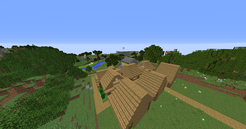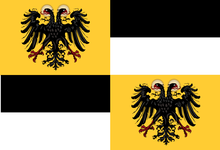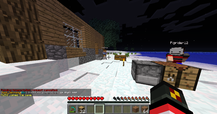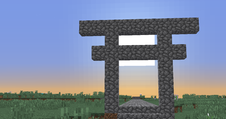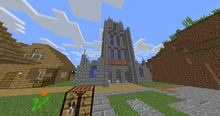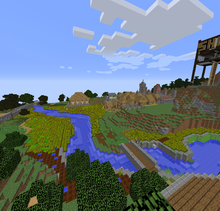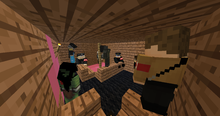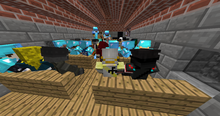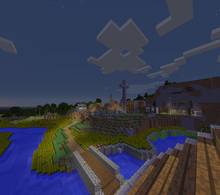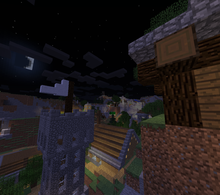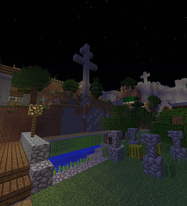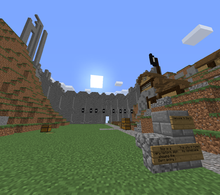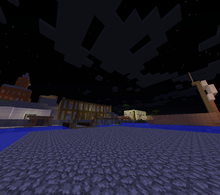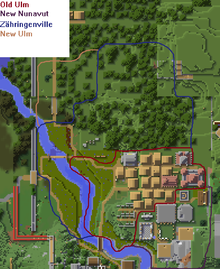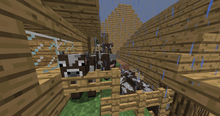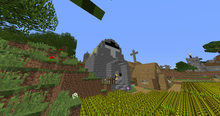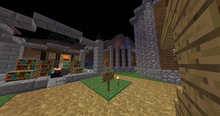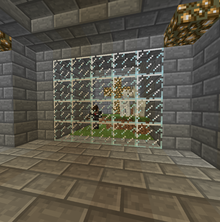Ulm (Classic): Difference between revisions
>Paperpikminn |
mushhushshu (talk | contribs) m (358276345802784768 moved page Ulm to Ulm (Classic)) |
||
| (37 intermediate revisions by 3 users not shown) | |||
| Line 1: | Line 1: | ||
{{Infobox_nation|title1 = Principality of Ulm|image1 = De-bw-us.gif|caption1 = Flag of the Free City of Ulm|leader: = P^5 paperpikmin|capital: = Ulm|political_system: = Commonwealth of elected principalities|economic_system: = Capitalist|standing_army: = | {{Infobox_nation|title1 = Principality of Ulm|image1 = De-bw-us.gif|caption1 = Flag of the Free City of Ulm|leader: = P^5 paperpikmin|capital: = Ulm|political_system: = Commonwealth of elected principalities|economic_system: = Capitalist|standing_army: = 4 Infantry (Unorganized Militia)|/n_list_page: = 1|world_power: = 21}} | ||
== Ulm == | == Ulm == | ||
[[File:2017-07-16 23.55.32.png|thumb|246x246px|View of Ulm]] | [[File:2017-07-16 23.55.32.png|thumb|246x246px|View of Ulm]] | ||
Ulm is a principality and town located along the Rhine River in western Germany. The town was founded on the exact same day the German Empire collpased, meaning it was founded at the exact moment the [[the Era of Growth]] ended, and the moment [[The New Era]] began, making it the only town to have existed in two eras at once. The town was founded by the | Ulm is a principality and town located along the Rhine River in western Germany. The town was founded on the exact same day the German Empire collpased, meaning it was founded at the exact moment the [[the Era of Growth]] ended, and the moment [[The New Era]] began, making it the only town to have existed in two eras at once. The town was founded by the German [[paperpikmin]], who had lived in Germany since his joining until it's untimely collapse. The town has shifted in importance a great deal since it's foundation, going from a small village in the [[Nazi Germany|3rd Reich]], to the political center of an absolutist [[German Federation]], and eventually the unquestioned leader and largest city of the [[Third German Empire]]. | ||
Politically the initially small town has always been an important center of power. The city initially was one of the three administrative centers of the Third Reich and was one of the three only active cities. Alongside the larger [[Munich]], Ulm was highly rebellious against Fascist rule and would often defect to [[Israel]]. Ulm also organized itself into a Commonwealth of elected principalities until October, with the cities of Penguinia and Munich also falling into this threshold as vassal states. Ulm for a very brief period was also a major city in the [[USTN]], being offered capital position, and was a part of [[United States|GuardedCharlie's Empire]]. This ended when Ulm became the center of first a reactionary HRE based coup, which quickly was overtaken by Republican nationalists. The leader of Ulm, still maintaining the p^5 title of nobility, was Chancellor of the republic and helped to guide it before resignation as a later Interim President. For 2 months Ulm, and the rest of Germany, was dead, and it became the capital of an Antarctican nation in Snowport. After two months, Ulm became the capital of the [[German Federation]], the nation that united all of Germany. This made it the supreme city of authority in Germany, with even Berlin not having as much political influence. When the relatively brief [[Second German Empire]] was established, however, Berlin was the capital once more. On the establishment of the [[Third German Empire]], however, Ulm became the capital once more of the Union between the Austrian and German kaisers. Berlin remained the defacto capital of Germany, while Vienna-Graz is the capital of Austria. As a result Ulm is still the center of power, however has less than under the German Federation. | |||
Ulm has left a major cultural impact on Germany as well. Always very different from the prevailing Old German Culture, Ulm has been a center of experimentation and new ideas, in contrast to the reactionary [[Vienna]]. Many variations of this exist, such as the city having a Llamaist majority and spreading this across Europe as a center of reformation, and through producing many novels such as "EU November". The city has traditionally resisted other religions such as early Lutheranism, followed by Catholicism, followed by later Lutheranism and Reformed Wokism. The values of the city are also different from the average German city, with more of an emphasis on representation. | |||
== History of Ulm == | |||
=== ''Germany Period'' === | |||
==== Early History ==== | ==== Early History ==== | ||
Ulm was founded immediately after the collapse of [[German Democratic Republic|Germany]], and initially was going to be the capital of a new nation named the [[Holy Roman Imperium|Holy Roman Empire]], more modernly known as the [[Holy Roman Imperium]]. The creation of [[Nazi Germany]] convinced paperpikmin to rejoin Germany however. The city's expansion was initially very slow, with only the town hall constructed, holding holy artifacts and the town's gold reserve. | Ulm was founded immediately after the collapse of [[German Democratic Republic|Germany]], and initially was going to be the capital of a new nation named the [[Holy Roman Imperium|Holy Roman Empire]], more modernly known as the [[Holy Roman Imperium]]. The creation of [[Nazi Germany]] convinced paperpikmin to rejoin Germany however, but they intended to form a Republic eventually. The city's expansion was initially very slow, with only the town hall constructed, holding holy artifacts and the town's gold reserve. | ||
Slowly, more homes were constructed in order for future residents to be situated. Ulm officially opened doors soon after, recruiting many new players to the town. Very active ones include asphalt_1828 and luckyluckieluke. The policy led to extremely rapid expansion for the principality, however was changed once the first conflict in Ulm's history occured. | Slowly, more homes were constructed in order for future residents to be situated. Ulm officially opened doors soon after, recruiting many new players to the town. Very active ones include asphalt_1828 and luckyluckieluke [note, these players are still loyal to Ulm]. The policy led to extremely rapid expansion for the principality, however was changed once the first conflict in Ulm's history occured. | ||
==== The Tnt Affair ==== | ==== The Tnt Affair ==== | ||
| Line 23: | Line 29: | ||
==== The Estate Wars ==== | ==== The Estate Wars ==== | ||
The principality of Ulm's first conflict would be with their sister town in Germany, [[Munich]]. After seizing the sword "This Machine Kills Communists" of paperpikmin and distributing it to the state, paperpikmin declared war on [[Munich]] for the transgression. The first battle occurred within the town of [[Munich]] itself, with a flood of Snowfugees being levied at 73beetle, leading to the mass snowing of [[Munich]]. A peace treaty was eventually signed, ending the first Estate War, wherein the sword would be returned to paperpikmin and the Snowfugees would in turn stop being granted access. The second war began when 73beetle seized the estate of paperpikmin in [[Munich]] after a disagreement. This led to two battles. The first was the Battle of Munich, wherein paperpikmin used access in the Munich Times HQ to launch aquatic bombardments on [[Munich]], as a light form of attack. The retaliation was the continued confiscation of the estate and distribution of paperpikmin's wealth within it. This led to the Battle of The Elbe River, wherein paperpikmin launched bombardments on [[Munich]] for their continued illegal confiscation. The result initially was stalemate, however soon after a peace treaty was signed returning the estate in return for the land to be repaired. | The principality of Ulm's first conflict would be with their sister town in Germany, [[Munich]]. After seizing the sword "This Machine Kills Communists" of paperpikmin and distributing it to the state, paperpikmin declared war on [[Munich]] for the transgression. The first battle occurred within the town of [[Munich]] itself, with a flood of Snowfugees being levied at 73beetle, leading to the mass snowing of [[Munich]]. A peace treaty was eventually signed, ending the first Estate War, wherein the sword would be returned to paperpikmin and the Snowfugees would in turn stop being granted access. The second war began when 73beetle seized the estate of paperpikmin in [[Munich]] after a disagreement. This led to two battles. The first was the Battle of Munich, wherein paperpikmin used access in the Munich Times HQ to launch aquatic bombardments on [[Munich]], as a light form of attack. The retaliation was the continued confiscation of the | ||
estate and distribution of paperpikmin's wealth within it. This led to the Battle of The Elbe River, wherein paperpikmin launched bombardments on [[Munich]] for their continued illegal confiscation. The result initially was stalemate, however soon after a peace treaty was signed returning the estate in return for the land to be repaired. | |||
==== The Release of Penguinia ==== | ==== The Release of Penguinia ==== | ||
| Line 35: | Line 43: | ||
While wandering Ireland for [[Munich Times|The Munich Times]] at an unfortunate moment, [[paperpikmin]] was killed while entering Ireland. This led to the outbreak of the Emerald Isle War, where paperpikmin declared full retaliation would be launched at them, ending the Time of Good Feelings. The war was incredibly short, featuring only one battle, the battle of the Emerald Isle, wherein paperpikmin and a coalition of roughly six players mass bombarded the area outside of the Irish capital of Kildare. An Ulm outpost was also established outside of the town in order to easily return, and block expansion. The war ended when XD_dude and paperpikmin agreed to a white peace, wherein neither nation would continue attacks on the other. The conflict is set as a precedent for those whom wish to attack Ulm. | While wandering Ireland for [[Munich Times|The Munich Times]] at an unfortunate moment, [[paperpikmin]] was killed while entering Ireland. This led to the outbreak of the Emerald Isle War, where paperpikmin declared full retaliation would be launched at them, ending the Time of Good Feelings. The war was incredibly short, featuring only one battle, the battle of the Emerald Isle, wherein paperpikmin and a coalition of roughly six players mass bombarded the area outside of the Irish capital of Kildare. An Ulm outpost was also established outside of the town in order to easily return, and block expansion. The war ended when XD_dude and paperpikmin agreed to a white peace, wherein neither nation would continue attacks on the other. The conflict is set as a precedent for those whom wish to attack Ulm. | ||
=== Government of Ulm === | ==== Time of Turbulence ==== | ||
Ulm entered an unprecedented time of political and social instability after the second conflict in Ulm's history. The political power of Ulm within [[Nazi Germany|Germany]] deteriorated as the nation began to expand and become a more centralized entity. Mayor of Frankfurt TC_Lapix asked [[paperpikmin]] to claim all of Frankfurt on it's collapse, promising to join Ulm. This was agreed upon, however soon afterwards Frankfurt was saved from destruction by Fix. Political instability soared as inactivity became a pressing issue within Ulm, and fear of further attack continued. This eventually led to the decision to leave [[Nazi Germany|Germany]] entirely and join another nation. The nation decided on by the principality was the [[United States]]. The Commonwealth of Elected Principalities member's have not yet voted on whether [[Penguinia]] and [[Munich]] should stay in Germany, however paperpikmin did not call one and left them to autonomy as a free city. | |||
=== ''United States Interlude'' === | |||
==== American Ulm ==== | |||
The period of Ulm in the United States was brief but incredibly lively. The nation had been attacked by several other nations, namely the [[Prestige WorldWide (PWW)|PWW]], and had established alliances with [[Maracaibo]] and [[Ireland]]. The backlash against Ulm was immense, with many within Nazi Germany asking for an Ulmer return, and those outside demanding they leave the new nation. Ulm would not leave, however, and took an active part in American affairs, providing military assets and supplies for the Californian invasion of America, and other acts. However, due to a duping conflict, wherein many duped items were used as military equipment, the leader of the United States was banned, and the nation collapsed. | |||
=== ''Republic of Germany Period'' === | |||
==== Realization of the Imperium ==== | |||
After the collapse of the [[United States]], leader of Munich, [[73beetle]], decided to form [[Portugal]]. This led to the rapid collapse of Munich, where [[paperpikmin]] rapidly worked to claim the most historical site in Munich, the graveyard. Ulm had just joined [[Sweden]] temporarily at the time as the [[United States|US]] collapsed, and they had not been given settler rank yet. As a result the land lay barren and free to claim by several forces, and attempts to join [[CMS]] immediately were not fast enough to secure the region. As a result, with gold acquired, [[paperpikmin]] formed the [[Republic of Germany|Holy Roman Empire]] as a nation in order to claim it. This was the political realization of the [[Holy Roman Imperium]] project established long ago, which had become a political party and movement within the sphere of Germany advocating democracy. The HRE would quickly be reorganized though, once Munich was secured, where paperpikmin and [[Caarliitoo]] worked to establish the Republic of Germany. | |||
==== The Republic of Germany ==== | |||
[[File:2017-07-03 20.42.28.png|thumb|226x226px|An ancient construction project]] | |||
The [[Republic of Germany]] was founded as the successor to the [[German Empire]] with [[Caarliitoo]] as President and [[paperpikmin]] as Chancellor. The Republic was a coup against the ineffective and also rather racist Nazi government. The Republic grew very quickly, reuniting all of Germany except some of [[Nazi Germany]]. The nation underwent massive political reform, establishing German law code, denazification, and the formation of a new German military, which would see minor skirmishes. Ulm at this time saw massive importance, as it became one of the most major cities within the Republic. Ulm achieved status as the first capital temporarily, however power eventually transferred to [[Berlin]]. | |||
==== Time in the Republic ==== | |||
The town during the republic experienced more political influence and power than it ever had before, marking it as an apex. Despite this, it was hardly a golden age. The town began to stagnate and wither, with the normal recruitment policy proving detrimental, and a loss of activity crippling it. The town grew very little, and industrial projects were a complete failure. Demoralization and duties focused away from the local and into foreign and domestic policy led to [[paperpikmin]] resigning as President, which was given after [[Caarliitoo]] resigned. | |||
=== ''Antarctica Interlude - Period of Hibernation'' === | |||
==== Death of Ulm ==== | |||
The commonwealth of principalities that made of Ulm was officially dissolved and replaced by the city of Snowport, existing in Antarctica near the southern tip. The city initially saw success, however paperpikmin effectively quit the server for months, leading to the complete destruction of all hope for a sustainable town. Ulm had become a distant memory in the minds of the people. This spelt the end of Ulm, until the restoration an entire era later. | |||
=== ''Restoration of Germany'' === | |||
==== Early Reconstruction ==== | |||
On October 21st paperpikmin officially returned to Earthmc, and renamed the town back to ULM. The restoration had begun. By the next day plans to recreate the German nation began, with ULM joining [[Alola]], and odd jobs being preformed for resources to the CCCP that ULM severely lacked. Soon after ULM was renamed to New Ulm and formed the [[German Federation]], thus beginning the [[Reconstruction of Germany]]. The town saw rapid reconstruction, with the Villager farm and dungeons completely removed, along with the empty fencing. Digging projects were carried out, and plans for walling around the city were underway. As the federation began to rapidly expand Ulm became a center of power and culture once again, acting as the authoritative head of Germany. The German Federation quickly became one of the most major states once again, and as such new outposts were established. Ulm saw new members join, who went on to found new German cities. This time also saw the 1st Ulmer Reformation, wherein Ulm converted from Catholic to Lutheran, and with it most of South Germany became Lutheran, until the rise of Reformed Wokism in Bavaria. | |||
==== Redevelopment of Ulm ==== | |||
As Reconstruction began to go from unification to rebuilding efforts across Germany, a new focus was placed on | |||
[[File:2017-12-03 21.54.16.png|thumb|220x220px|The Ulm Minster, Cathedral of Ulm.]] | |||
building Ulm up into a thriving city. While already being a politically important town, new construction efforts, such as the Ulm Minster, Castle Fledermaus, and the redesign of the Chuch of Saint Henry II, all began to make Ulm look more like a developed city. The city nearly doubled in size, with many new homes built, and bunkers developed across the underground. The Second Ulmer Reformation also occured, with Ulm largely becoming Llama-Lutheran. The Ulmer Grand Library was also established, to keep record of many ancient works of literature. The city population also exploded, going from a meager 10-15 to a massive 51 before recruitment slowed, within a very short timeframe. | |||
==== Agriculturalization of the Rhine ==== | |||
[[File:2018-01-04 01.03.03.png|thumb|220x220px|Picture of Ulm from a nearby tree, showing the entire town.]] | |||
A major project was then undertaken as Ulm continued to expand more and more. A massive farm was established along the Rhine river, making Ulm feel like a far more rural city. The city also continued to gain more and more people, boosting up to a colossal 64 people, the biggest any German city had ever seen. More projects began to go underway, such as Rhinestop as a store, and the Llama Chapel of Kaiser Carlito I, the center of llamaism in Germany. An old member of Ulm, luckylukieluke, also rejoined around this time, and was granted an estate in the new farmland that was established. | |||
=== ''Ianic Interlude'' === | |||
==== Ianic Ulm ==== | |||
After the Second German Empire collapsed, Ulm went into the possession of IanNotEN, with paper moving elsewhere for two months. The period saw the construction of the "IAN" sign, however little other developments. The ruling nation was Qi. It was known for extreme inactivity, and for being a producer of high quality memes. The town was renamed the Ianic Empire. | |||
=== ''Third German Empire'' === | |||
==== Establishment ==== | |||
The Third Empire was then established on 4/4/2018, and Ulm grew once more after. Minor infrastructural changes were made, and many more people became residents of the city, however otherwise the city did not change much for a period of 2 months. Some houses in Grunstadt that were notoriously ugly were also remodeled. | |||
==== Llama Chapel ==== | |||
After the nearly 2 month period Ulm began to see major projects. The Estate of Lucky was replaced with a Llama Chapel, the largest in all of Europe. The Chapel serves as the center of German Llamaism, and is named the Lucky Münster. This allowed German llamaism to go from a small sect practiced in the outer reaches of the world to a more significant branch of the religion. That said, most Germano Llamaists remained Ulm. Bern also saw it's first major reconstructive works since it's aquirement by Ulm nearly half a year prior. | |||
==== Second Time of Good Feelings ==== | |||
[[File:Tag.png|thumb|220x220px|German officials enjoying a night off in the local Munich Times HQ strip club, Ulm.]] | |||
Ulm once again experienced a time of rapid growth and construction, with many new homes established in the New Nunavut neighborhood of the city, and a large amount of new residents. Mass expansion and the construction of a new neighborhood characterized this time. The rapidly expanding German Empire also saw many citizens found colonial cities. | |||
==== Battle of Ulm ==== | |||
The Second Time of Good Feelings ended with the Battle of Ulm during the [[2 Days War]]. This battle was defensive and quickly left the bounds of Ulm. It was fairly inconclusive as a result of consistent Lantaun retreating and attempts to crystal. The battle barely affected the outcome of the war, though. | |||
==== The Great Contest ==== | |||
Ulm and Vienna-Graz then entered a major contest over which town would be the larger one. This was after the very old precedent of Ulm being the largest city in German being shattered in the March chaos. Both cities grew steadily despite funding colonial towns, growing faster than any other towns on the server and contributing vastly to the Third German Empire's meteoric growth. Eventually, Ulm vastly surpassed Vienna at a 10 person difference. | |||
[[File:GLORY.png|thumb|220x220px|Speech held in the Church of Saint Henry II.]] | |||
The city also held the yearly anniversary of the mayor, Paper, and his joining that time a year ago. The initial parade went through Berlin and Leipzig before reaching Ulm, where several speeches were held by Paper and various other Germans. At the end was a memorium visit to the Ulmer Graveyard to commemorate Socciety. | |||
==== Urban Development ==== | |||
Ulm saw many new buildings constructed, such as Llama Chapels and strip clubs. | |||
== Cities == | |||
=== ''Constituent Cities'' === | |||
[[File:2018-05-27 13.27.59.png|thumb|220x220px|City of Ulm, displaying the old homes and newer Nunavut district.]] | |||
Ulm is broken up into a few constituent cities, all part of the commonwealth and principality. | |||
==== Ulm ==== | |||
Ulm is the most well known of the cities, with most residents living in the city. The city was the first town to be incorporated into the principality, and is the second oldest after Bern. The city is also the second largest when considering the Rhineland farms. | |||
The city is by far the most populated in the principality, with the vast majority of inhabitants calling it their home. The notable landmarks of the town are the Church of Saint Henry II, the oldest church in Germany with roots in Catholicism turned Lutheranism, and many ancient Vatican artifacts. The Ulm Minster also stands out, for being the tallest church in Germany and arguably best designed building in Ulm. The large Monument of Charkov stands as a tall cross in the city, reminding Germans of the sacrifices made in the Ukrainian wonder. The Ulm graveyards also display the names of the fallen, and massive farmlands surround the small city. Perhaps most interestingly, the city is full of hidden underground bunkers full of great riches such as German Llamas. One such bunker was the site of the planning of the [[Deuanglic War]]. | |||
Ulm is also constantly growing, with plans to establish the Lucky Llama Chapel, planned to be the largest Llama Chapel in the world, and with the mountain still being dug up. Eventually once gold is obtained from underwater reserves in the Atlantic, Ulm will expand north and begin construction of the Burg Zähringen and expand farmland. | |||
==== Grunstadt ==== | |||
[[File:Grunstadt.png|thumb|220x220px|City of Grunstadt, with the Rhine flowing through it and many churches on display.]] | |||
Grunstadt is the second major area within Ulm and the second most populated. The city has a rich history of once being the home of the well known Mcblue2, before falling to ruins during the German Dark Ages. The city was then refounded as Saronheim by [[KadeTheDank]], and alternated between nations until they rejoined the German Federation under paperpikmin. The city then switched leadership, with Socciety gaining mayorship and Kade ruling Lorraine. The city at this time became a major center of German Orthodoxy and had significant ties with Hero's Russia (before hostilities began). The city was then sold to Ulm as Socciety moved to Danzig prior to his ban. | |||
[[File:Cros.png|thumb|206x206px|Saint Socciety's Byzantine Cross, Grunstadt.]] | |||
Grunstadt is incredibly impressive and was at a time larger than Ulm. The city features incredibly old Orthodox Churches and is a center of the Orthodox faith. Many historical and impressive monuments can be found in the city, such as the Grunstadt Orthodox Church, the Flaggenturn, and the Saint Paul Orthodox Monestary. Another major monument is the fairly new Saint Socciety's Byzantine Cross. Many impressive homes dot the Rhine coast, making it the second most populated city in the principality. Many ancient works of literature, such as the original Orthodox Bible, have been discovered, and the riches of the city are still not fully known. | |||
As of now there are no plans to expand Grunstadt, due to the growing nature of Ulm and need to repair Bern to it's former glory. This may, however, change in the future. | |||
[[File:Bern.png|thumb|220x220px|Ruins of Bern]] | |||
==== Bern ==== | |||
Bern is the smallest of the 4 major cities and is currently in ruins. The city is the oldest of the four, once being a thriving Swiss city state, now a shadow of it's former self. After the Tortugan destruction and later eviction, paper claimed the territory as part of Ulm during the German Federation. The plan was to rebuild the city, however constant time constraints have left this project severely delayed. As of now, 1/4 of the wall has been reconstructed, and the old Tortugan HQ was torn down. This summer the city will be a shining polis again. | |||
The city has some interesting sites, such as the rebuilt walls, and many plans. Ten new houses are planned to be remade to house a new population, in addition to a palace to commemorate the old ruler, EthanKing. There are also plans to create a Bern Church for Llamaism. | |||
[[File:Royan.png|thumb|220x220px|The City of Royan, featuring the major port along the French-Navarre coastline]] | |||
==== Royan ==== | |||
Perhaps most interesting of the 4 major towns is Royan. Run by PolkadotMonkey, it was sold to paper for 250 gold as a means for Germany to expand into France. Experiencing great political turmoil between Germany, France, and Spain for months, the city was ruled by BatmanKristina as Duchess until the Ianic Interlude, then was marked to be sold. However, the Royan Charter issued by the Third German Empire officially annexed the territory, thus reigniting territorial ambition in France. | |||
Royan is a pleasant French city located in the Southwest of the region. The city is home to many important sites, such as the Port of Royan and Royan Palace. The city has housed many residents in the past during the reign of BatmanKristina, however is currently uninhabited due to the tumultuous period since. Once Bern is rebuilt, however, there are plans to find a new regent to help promote Royan once more. | |||
==== Other ==== | |||
There are a few other ruins held my the principality, such as Kazan and Jerusalem and Snowport. Only Jerusalem currently has plans for revitalization. There is also a prison in Peru. | |||
== Neighborhoods == | |||
[[File:Ulm neighboorhoods.png|thumb|269x269px|Map demonstrating current and planned neighborhoods. Subject to change.]] | |||
Ulm is also home to several neighborhoods since it's initial founding. | |||
=== ''Ulm'' === | |||
==== Old Ulm ==== | |||
The Old Ulm neighborhood is the area where Ulm was first established. The region is the heart of the city and entire principality. The Old part of the city is where the majority of the monuments and homes are currently located, and is where the classic "Ulm rustic" feel originates from. It also often gets scrutiny for being relatively simplistic in design. The majority of bunkers are also located here, in addition to a large swath of the population. | |||
[[File:U l m.png|left|thumb|220x220px|A cow farm located between two homes, showing how Old Ulm is extremely compact and homey.]] | |||
Old Ulm houses many interesting buildings, and is incredibly compact. It is often remarked as "entering another world" and "incredibly rustic." The city has roughly 10 homes all sandwiched within a very small area, and a myriad of historical buildings. The Ulm Town Hall, the oldest building in Ulm and home to great riches, stands out as very different from the other stone buildings. The reason is it was made before the Great Redesign, wherein the Church of Saint Henry II (once looking very similar to the Town Hall) was changed to vastly improve the quality of the building. The Town Hall, however, is simply too old to change. The Old City has buildings from early July to late January, all being considered part of the neighborhood. The ancient graveyard is also considered a part of this, with ancient people's names written on the stones. The Castle Fledermaus is also located in the Old City, standing as the home. | |||
[[File:Thonhal.png|thumb|220x220px|Town Hall of Ulm, located in the Old Ulm neighborhood]] | |||
Historically Old Ulm has been a center of major population, with Ulm alternating from being a small village to the largest city in Germany, twice. The Great Purge saw a major decline in population from 71 to 28, which eventually fell down to 2 in early April. By late May, however, the city rebounded to 24, in a period of time where recruitment was very slow. | |||
==== New Nunavut ==== | |||
The New Nunavut neighborhood is located on the southern side of Ulm, featuring many new buildings. The area is named after the old city of Nunavut for similar buildings. The neighborhood is fairly high populated and houses many monuments such as the Charkov Memorial. The neighborhood is very new and is planned to be expanded with a library and prison. | |||
[[File:2018-05-27 15.13.34.png|left|thumb|220x220px]] | |||
The neighborhood is also home to the Munich Times HQ, where the newspaper the Munich Times is produced and where Munich Alert is filmed and published. This makes the neighborhood a center of culture across the entire principality. In addition to this, most homes in New Nunavut are made by residents, giving it a very different feel to the rest of Ulm's simplistic rustic design. | |||
==== Zähringenville ==== | |||
Zähringenville is a planned neighboorhood where farm houses and the Burg Zähringen will be located. It will mostly be rural, with a few notable buildings and large amounts of farmland. | |||
==== New Ulm ==== | |||
New Ulm is a planned neighborhood where modern buildings, such as a planned Ulm Tower, will be constructed. The area is far from development and may be scrapped entirely. | |||
== Demographics == | |||
=== ''Religion'' === | |||
The Demographics of Ulm are very diverse, with minorities of many religions being present within the city. The demographics somewhat resemble the overall demographics of Germany. As Ulm has religious freedom, unlike other cities, it has a large amount of religious diversity. | |||
==== German Llamaism ==== | |||
The German branch of Llamaism is by far the dominant religion of the city of Ulm, with the vast majority of citizens being practitioners of it. The Pope of the German branch of Kaiser Carlito II von Hohenzollern. After splitting from Incan Llamaism, the branch became far more popular in Germany. | |||
==== Lutheranism ==== | |||
By was at a time the by far most dominant religion in Ulm (and Germany).The religion once was a minority in Ulm, however, with the 1st Ulmer Reformation, this changed very quickly. That said, with the growing advent of Llamaism, Lutheranism in Ulm became more and more rare | |||
==== Lutheran-Llamaism ==== | |||
[[File:2017-12-30 18.40.08.png|thumb|222x222px|Rare photograph of the German family of llamas, showing the llama Kaiser Carlito II of Hohenzollern, and the llama Prince Beetle I of Habsburg, both being born in Alaska and quickly being shipped to Germany after.]] | |||
Lutheran-Llamaism is a branch of both Lutheranism, and more strongly Llamaism, and is a very small minority in Ulm. Despite this, it had a large presence, as it is practiced by reigning Chancellor of the [[German Federation]]. This soon changed as the Chancellor of Ulm began mass converting many new citizens, growing the religion immensely. The religion entails a strict following of Llamaist teachings where seen, such as the forbidden act of selling a Llama, and it sees the center of the religion in the Cathedral of the Llama Chapel in Alaska. The religious of course abide by Christian Lutheran teachings as well. Llamaism has also bled into German Orthodoxy, becoming part of the holy book. With the split from the Incan church, however, German Llamaism quickly overtook Lutheran-Llamaism. | |||
==== German Orthodoxy ==== | |||
With the acquisition of Grunstadt, the home of German Orthodoxy, German Orthodox practitioners became a small minority. As many holy Orthodox sites are located in Ulm, however, they maintain a significant amount of influence. The majority of Grunstadt is actually German Llamaist, however. | |||
==== Reformed Wokism ==== | |||
Orthodox Wokism is not prevalent in any of mainland Germany, however the same cannot be said for Reformed Wokism under it's patriarch 73beetle in Bavaria. While it is the smallest notable community of religions in Ulm, the presence of it is somewhat destabilizing, as there have been several Wokist Revolts across Bavaria. While general religious freedom is admitted, the religion is generally looked down upon by many in higher German socciety. Despite this Wokism continues to spread across Germany, with Bavaria as it's stronghold. A major loss hit it, however, as the Austrians went from Wokist to Christian once more. Wokism now is nearly extinct, with virtually nobody in Ulm following it's tenants. | |||
==== Spaghettists ==== | |||
Spaghettists are also a very small minority in Ulm, however under Pope Spaghettti and his High Cardinal Ian of Danzig, it began to slowly spread into Ulmer society. That said it is still not a major religion, and very few know of it's existence. | |||
== Government of Ulm == | |||
=== ''Current Government'' === | |||
The government is that of a segment of the German Empire. | |||
=== ''Old Governments'' === | |||
==== 1st ==== | |||
==== Structure ==== | ==== Structure ==== | ||
Ulm | Ulm was a democratic principality under the Holy Roman Empire. The prince of Ulm is [[paperpikmin]], however the position of Chancellor, the official governing head of Ulm, is elected Monthly, with political parties running for the position. In practice, however, no elections were ever held, as paperpikmin generally was the only active member. Ulm was under the Holy Roman Empire as well, however the Empire was generally unused, and as such the acting emperor was disputed. The nation also served as the capital of the [[Republic of Germany]], however kept it's feudal positions. | ||
==== Subject Nations ==== | ==== Subject Nations ==== | ||
The principality also | The principality also had possession of numerous subjects, including the [[Penguinia|Kingdom of Penguinia]], and the town of [[Munich]], despite it's collapse. The vassals under Ulm experienced almost no rules or authority, with the only conditions being that they are vassal in name, and respect Ulm laws. While Penguinia has collapsed, Munich was and arguably is still considered a vassal state. | ||
== Buildings of Ulm == | |||
Note: This is outdated. | |||
=== | === Residential === | ||
Ulm currently possesses a residential sector, with 5 homes. The homes organization changes very frequently and as such is not recorded anymore. These buildings do not regard Grunstadt buildings currently. | |||
<nowiki>*</nowiki>Houses may be evicted soon. | <nowiki>*</nowiki>Houses may be evicted soon. | ||
=== | === Municipal Government === | ||
Ulm currently possesses | Ulm currently possesses many buildings, most being under control of the city itself, however Ulm Dungeon is considered direct property of the State as it is a jail. The buildings are organized as follows: | ||
* The Ulm Storage House | * The Ulm Storage House | ||
* The Ulm Quarters | * The Ulm Quarters | ||
* The Ulm Town Hall | * The Ulm Town Hall | ||
* The Ulm Sheep Farm | * The Ulm Sheep Farm | ||
* The Ulm Flower Garden | |||
* The Ulm Graveyard | |||
* The Church of Saint Peter (Under Construction) | |||
=== Privatized === | |||
Ulm currently possesses two privatized buildings, owned by corporations or specific residents. While eminent domain may be used on the property they are under direct control of the private owner. The buildings are organized as follows: | Ulm currently possesses two privatized buildings, owned by corporations or specific residents. While eminent domain may be used on the property they are under direct control of the private owner. The buildings are organized as follows: | ||
* The Ulm Bar owned by [[paperpikmin]] | * The Ulm Bar owned by [[paperpikmin]] | ||
* The Munich Times Headquarters 2 owned by The Munich Times | * <s>The Munich Times Headquarters 2 owned by The Munich Times</s> (Since Evicted) | ||
* Castle Fledermaus by Batman | |||
=== Eclysiastic === | |||
Ulm also possesses many religious buildings, however currently, all religious buildings are considered property of the city. That said, this is subject to change. | |||
* Holy Church of Kaiser Carlito II | |||
* Ulm Minster | |||
* Holy Church of Saint Henry II | |||
=== Federal === | |||
Ulm houses many buildings that are directly owned by the German Empire. | |||
* Ulm Dungeon | |||
* Munich Times Organization HQ (State owned newspaper company) | |||
== Outposts of Ulm == | |||
Note: This is outdated and no longer verifiable due to outpost limits. | |||
=== Nature of Outposts === | |||
While not all outposts are made public to the viewership of this article, a series are reflected. They can be made for functional purposes, historic purposes (such as preserving fallen towns to hopefully eventually recreate), and convenience otherwise. It's important to note one such outpost was removed, but is still teleport-able for an unknown reason. | |||
=== List of Outposts === | |||
# Tibetan Outpost - Designed to help mining operations and secure Ulmer Tibetan Territories | |||
# Kazan - Designed to be a historic reminder of the past. | |||
# Classified | |||
# Classified - More of a glitch than an outpost | |||
# Classified | |||
# Munich Town Hall and Graveyards - Designed to be a historic reminder of the past | |||
# Bern - Designed to be a historic reminder of the past (soon to be renovated as well) | |||
# Snowport - Antarctican Outpost that may act as a suburbs for New Ulm. | |||
# Classified | |||
[[Category:Towns]] | [[Category:Towns]] | ||
Latest revision as of 16:57, 21 December 2022
Ulm
Ulm is a principality and town located along the Rhine River in western Germany. The town was founded on the exact same day the German Empire collpased, meaning it was founded at the exact moment the the Era of Growth ended, and the moment The New Era began, making it the only town to have existed in two eras at once. The town was founded by the German paperpikmin, who had lived in Germany since his joining until it's untimely collapse. The town has shifted in importance a great deal since it's foundation, going from a small village in the 3rd Reich, to the political center of an absolutist German Federation, and eventually the unquestioned leader and largest city of the Third German Empire.
Politically the initially small town has always been an important center of power. The city initially was one of the three administrative centers of the Third Reich and was one of the three only active cities. Alongside the larger Munich, Ulm was highly rebellious against Fascist rule and would often defect to Israel. Ulm also organized itself into a Commonwealth of elected principalities until October, with the cities of Penguinia and Munich also falling into this threshold as vassal states. Ulm for a very brief period was also a major city in the USTN, being offered capital position, and was a part of GuardedCharlie's Empire. This ended when Ulm became the center of first a reactionary HRE based coup, which quickly was overtaken by Republican nationalists. The leader of Ulm, still maintaining the p^5 title of nobility, was Chancellor of the republic and helped to guide it before resignation as a later Interim President. For 2 months Ulm, and the rest of Germany, was dead, and it became the capital of an Antarctican nation in Snowport. After two months, Ulm became the capital of the German Federation, the nation that united all of Germany. This made it the supreme city of authority in Germany, with even Berlin not having as much political influence. When the relatively brief Second German Empire was established, however, Berlin was the capital once more. On the establishment of the Third German Empire, however, Ulm became the capital once more of the Union between the Austrian and German kaisers. Berlin remained the defacto capital of Germany, while Vienna-Graz is the capital of Austria. As a result Ulm is still the center of power, however has less than under the German Federation.
Ulm has left a major cultural impact on Germany as well. Always very different from the prevailing Old German Culture, Ulm has been a center of experimentation and new ideas, in contrast to the reactionary Vienna. Many variations of this exist, such as the city having a Llamaist majority and spreading this across Europe as a center of reformation, and through producing many novels such as "EU November". The city has traditionally resisted other religions such as early Lutheranism, followed by Catholicism, followed by later Lutheranism and Reformed Wokism. The values of the city are also different from the average German city, with more of an emphasis on representation.
History of Ulm
Germany Period
Early History
Ulm was founded immediately after the collapse of Germany, and initially was going to be the capital of a new nation named the Holy Roman Empire, more modernly known as the Holy Roman Imperium. The creation of Nazi Germany convinced paperpikmin to rejoin Germany however, but they intended to form a Republic eventually. The city's expansion was initially very slow, with only the town hall constructed, holding holy artifacts and the town's gold reserve.
Slowly, more homes were constructed in order for future residents to be situated. Ulm officially opened doors soon after, recruiting many new players to the town. Very active ones include asphalt_1828 and luckyluckieluke [note, these players are still loyal to Ulm]. The policy led to extremely rapid expansion for the principality, however was changed once the first conflict in Ulm's history occured.
The Tnt Affair
The player tntchicken was invited by paperpikmin into the town, despite the fact that they were not properly vetted and fully trustworthy. This would lead to the town paying the price, with him and his friend looting and griefing the small town. The disheartening outcome however, would quickly be reversed, due to the town being in it's infancy. This led to an immediate change in policy, where recruitment was far more strict now.
Rapid Expansion
The principality at this point had been part of USTN for the majority of it's lifespan, despite forming entirely for Germany. The reasoning for this was unrest over the name Nazi Germany, and a desire to return to the old era of Germany. This was shortly before the German rebellion. Ulm at this time grew in size and infrastructure massively. The Ulm sheep farm, Ulm storage, and many new Ulm houses were constructed. More importantly, however, were the increase of outposts in use by Ulm. Ulm's first outpost was established in the icy mountains of Asia for mining, and was relatively successful in adding to the wealth of the nation. The second outpost is detailed more in the next section, specifically Kazan. The third outpost was Ulm's first End Grinder, specifically designed for the mass accumulation of unarmed. TTimmy was the creator of the grinder, however after an expedition that led to Ulm rediscovering the lost grinder, they allowed the principality use of it. Minor issues of disruption of the grinder occur occasionally, however the deal is a solidified and well made one. Another outpost was established in Antarctica as well. The residents of Ulm enjoyed a time of peace and growth, with new assets being made constantly.
Fall of Kazan
The fall of Kazan was known before the event itself occurred, as a deal was forged between Kazan leader Netflix and paperpikmin. The town was largely evacuated and looted before it actually collapsed, primarily by Ulm and Netflix. The center of the town was also outposted immediately after it's collapse, allowing the riches of it's center to be exploited by the principality. Shortly after the collapse many players went to strip the already looted remains of Kazan to bare bones. The castles of Kazan are now shells of what they once were, however the area is of Ulm sovereignty now. More details on the event can be found elsewhere.
The Estate Wars
The principality of Ulm's first conflict would be with their sister town in Germany, Munich. After seizing the sword "This Machine Kills Communists" of paperpikmin and distributing it to the state, paperpikmin declared war on Munich for the transgression. The first battle occurred within the town of Munich itself, with a flood of Snowfugees being levied at 73beetle, leading to the mass snowing of Munich. A peace treaty was eventually signed, ending the first Estate War, wherein the sword would be returned to paperpikmin and the Snowfugees would in turn stop being granted access. The second war began when 73beetle seized the estate of paperpikmin in Munich after a disagreement. This led to two battles. The first was the Battle of Munich, wherein paperpikmin used access in the Munich Times HQ to launch aquatic bombardments on Munich, as a light form of attack. The retaliation was the continued confiscation of the
estate and distribution of paperpikmin's wealth within it. This led to the Battle of The Elbe River, wherein paperpikmin launched bombardments on Munich for their continued illegal confiscation. The result initially was stalemate, however soon after a peace treaty was signed returning the estate in return for the land to be repaired.
The Release of Penguinia
Penguinia, Ulm's Antarctican outpost, was established as a Kingdom after ArizTrad settled the freezing steppe. The colony quickly became a town of it's own, and with the arrival of colonist wolfbj, the region looked like an entirely independent town. However, the colony functioned as a direct part of Ulm. The principality of Ulm and King ArizTrad made an agreement, wherein in return for all gold spent claiming (48) Penguinia would be granted independence as a vassal of Ulm. This effectively makes them sovereign, but still under the Ulm principality. The Kingdom quickly became the gem of Antarctica, establishing beautiful farms and homes in the icy tundra. The vassalage of the town was questioned by several other people, especially when they joined a different nation, Connecticut, then Ulm, Nazi Germany. Ulm however asserts authority over the town as a vassal, and instead says that they were the only town to be in two nations, Nazi Germany and Connecticut. This makes Ulm even more unique. The town however joined Nazi Germany to be closer with Ulm, however. The future of the Kingdom of Penguinia is unknown, on whether they will attempt to gain independence, or remain a loyal vassal.
Time of Good Feelings
The principality after this affair entered a time of peace and growth. Many new buildings, such as the Quarters, Bar, and second Munich Times HQ were finished. The construction of the second Ulm end grinder, one to specialize on xp, has also finished. The town of Munich has also officially joined the principality of Ulm in vassalage, becoming the second town to do so. This is far more a symbolic act, however, as little to no authority can be brought over the larger town of Munich. During this time the Principality of Ulm and their vassal the Principality of Munich joined Israel temporarily due to a minor dispute, and also for diplomatic reasons to strengthen Ulm's ties with the nation. At the end of this period Ulm, Egypt, and the CMS all agreed to partition Tibet and expand in particular regions within the desolate mountains.
The Emerald Isle War
While wandering Ireland for The Munich Times at an unfortunate moment, paperpikmin was killed while entering Ireland. This led to the outbreak of the Emerald Isle War, where paperpikmin declared full retaliation would be launched at them, ending the Time of Good Feelings. The war was incredibly short, featuring only one battle, the battle of the Emerald Isle, wherein paperpikmin and a coalition of roughly six players mass bombarded the area outside of the Irish capital of Kildare. An Ulm outpost was also established outside of the town in order to easily return, and block expansion. The war ended when XD_dude and paperpikmin agreed to a white peace, wherein neither nation would continue attacks on the other. The conflict is set as a precedent for those whom wish to attack Ulm.
Time of Turbulence
Ulm entered an unprecedented time of political and social instability after the second conflict in Ulm's history. The political power of Ulm within Germany deteriorated as the nation began to expand and become a more centralized entity. Mayor of Frankfurt TC_Lapix asked paperpikmin to claim all of Frankfurt on it's collapse, promising to join Ulm. This was agreed upon, however soon afterwards Frankfurt was saved from destruction by Fix. Political instability soared as inactivity became a pressing issue within Ulm, and fear of further attack continued. This eventually led to the decision to leave Germany entirely and join another nation. The nation decided on by the principality was the United States. The Commonwealth of Elected Principalities member's have not yet voted on whether Penguinia and Munich should stay in Germany, however paperpikmin did not call one and left them to autonomy as a free city.
United States Interlude
American Ulm
The period of Ulm in the United States was brief but incredibly lively. The nation had been attacked by several other nations, namely the PWW, and had established alliances with Maracaibo and Ireland. The backlash against Ulm was immense, with many within Nazi Germany asking for an Ulmer return, and those outside demanding they leave the new nation. Ulm would not leave, however, and took an active part in American affairs, providing military assets and supplies for the Californian invasion of America, and other acts. However, due to a duping conflict, wherein many duped items were used as military equipment, the leader of the United States was banned, and the nation collapsed.
Republic of Germany Period
Realization of the Imperium
After the collapse of the United States, leader of Munich, 73beetle, decided to form Portugal. This led to the rapid collapse of Munich, where paperpikmin rapidly worked to claim the most historical site in Munich, the graveyard. Ulm had just joined Sweden temporarily at the time as the US collapsed, and they had not been given settler rank yet. As a result the land lay barren and free to claim by several forces, and attempts to join CMS immediately were not fast enough to secure the region. As a result, with gold acquired, paperpikmin formed the Holy Roman Empire as a nation in order to claim it. This was the political realization of the Holy Roman Imperium project established long ago, which had become a political party and movement within the sphere of Germany advocating democracy. The HRE would quickly be reorganized though, once Munich was secured, where paperpikmin and Caarliitoo worked to establish the Republic of Germany.
The Republic of Germany
The Republic of Germany was founded as the successor to the German Empire with Caarliitoo as President and paperpikmin as Chancellor. The Republic was a coup against the ineffective and also rather racist Nazi government. The Republic grew very quickly, reuniting all of Germany except some of Nazi Germany. The nation underwent massive political reform, establishing German law code, denazification, and the formation of a new German military, which would see minor skirmishes. Ulm at this time saw massive importance, as it became one of the most major cities within the Republic. Ulm achieved status as the first capital temporarily, however power eventually transferred to Berlin.
Time in the Republic
The town during the republic experienced more political influence and power than it ever had before, marking it as an apex. Despite this, it was hardly a golden age. The town began to stagnate and wither, with the normal recruitment policy proving detrimental, and a loss of activity crippling it. The town grew very little, and industrial projects were a complete failure. Demoralization and duties focused away from the local and into foreign and domestic policy led to paperpikmin resigning as President, which was given after Caarliitoo resigned.
Antarctica Interlude - Period of Hibernation
Death of Ulm
The commonwealth of principalities that made of Ulm was officially dissolved and replaced by the city of Snowport, existing in Antarctica near the southern tip. The city initially saw success, however paperpikmin effectively quit the server for months, leading to the complete destruction of all hope for a sustainable town. Ulm had become a distant memory in the minds of the people. This spelt the end of Ulm, until the restoration an entire era later.
Restoration of Germany
Early Reconstruction
On October 21st paperpikmin officially returned to Earthmc, and renamed the town back to ULM. The restoration had begun. By the next day plans to recreate the German nation began, with ULM joining Alola, and odd jobs being preformed for resources to the CCCP that ULM severely lacked. Soon after ULM was renamed to New Ulm and formed the German Federation, thus beginning the Reconstruction of Germany. The town saw rapid reconstruction, with the Villager farm and dungeons completely removed, along with the empty fencing. Digging projects were carried out, and plans for walling around the city were underway. As the federation began to rapidly expand Ulm became a center of power and culture once again, acting as the authoritative head of Germany. The German Federation quickly became one of the most major states once again, and as such new outposts were established. Ulm saw new members join, who went on to found new German cities. This time also saw the 1st Ulmer Reformation, wherein Ulm converted from Catholic to Lutheran, and with it most of South Germany became Lutheran, until the rise of Reformed Wokism in Bavaria.
Redevelopment of Ulm
As Reconstruction began to go from unification to rebuilding efforts across Germany, a new focus was placed on
building Ulm up into a thriving city. While already being a politically important town, new construction efforts, such as the Ulm Minster, Castle Fledermaus, and the redesign of the Chuch of Saint Henry II, all began to make Ulm look more like a developed city. The city nearly doubled in size, with many new homes built, and bunkers developed across the underground. The Second Ulmer Reformation also occured, with Ulm largely becoming Llama-Lutheran. The Ulmer Grand Library was also established, to keep record of many ancient works of literature. The city population also exploded, going from a meager 10-15 to a massive 51 before recruitment slowed, within a very short timeframe.
Agriculturalization of the Rhine
A major project was then undertaken as Ulm continued to expand more and more. A massive farm was established along the Rhine river, making Ulm feel like a far more rural city. The city also continued to gain more and more people, boosting up to a colossal 64 people, the biggest any German city had ever seen. More projects began to go underway, such as Rhinestop as a store, and the Llama Chapel of Kaiser Carlito I, the center of llamaism in Germany. An old member of Ulm, luckylukieluke, also rejoined around this time, and was granted an estate in the new farmland that was established.
Ianic Interlude
Ianic Ulm
After the Second German Empire collapsed, Ulm went into the possession of IanNotEN, with paper moving elsewhere for two months. The period saw the construction of the "IAN" sign, however little other developments. The ruling nation was Qi. It was known for extreme inactivity, and for being a producer of high quality memes. The town was renamed the Ianic Empire.
Third German Empire
Establishment
The Third Empire was then established on 4/4/2018, and Ulm grew once more after. Minor infrastructural changes were made, and many more people became residents of the city, however otherwise the city did not change much for a period of 2 months. Some houses in Grunstadt that were notoriously ugly were also remodeled.
Llama Chapel
After the nearly 2 month period Ulm began to see major projects. The Estate of Lucky was replaced with a Llama Chapel, the largest in all of Europe. The Chapel serves as the center of German Llamaism, and is named the Lucky Münster. This allowed German llamaism to go from a small sect practiced in the outer reaches of the world to a more significant branch of the religion. That said, most Germano Llamaists remained Ulm. Bern also saw it's first major reconstructive works since it's aquirement by Ulm nearly half a year prior.
Second Time of Good Feelings
Ulm once again experienced a time of rapid growth and construction, with many new homes established in the New Nunavut neighborhood of the city, and a large amount of new residents. Mass expansion and the construction of a new neighborhood characterized this time. The rapidly expanding German Empire also saw many citizens found colonial cities.
Battle of Ulm
The Second Time of Good Feelings ended with the Battle of Ulm during the 2 Days War. This battle was defensive and quickly left the bounds of Ulm. It was fairly inconclusive as a result of consistent Lantaun retreating and attempts to crystal. The battle barely affected the outcome of the war, though.
The Great Contest
Ulm and Vienna-Graz then entered a major contest over which town would be the larger one. This was after the very old precedent of Ulm being the largest city in German being shattered in the March chaos. Both cities grew steadily despite funding colonial towns, growing faster than any other towns on the server and contributing vastly to the Third German Empire's meteoric growth. Eventually, Ulm vastly surpassed Vienna at a 10 person difference.
The city also held the yearly anniversary of the mayor, Paper, and his joining that time a year ago. The initial parade went through Berlin and Leipzig before reaching Ulm, where several speeches were held by Paper and various other Germans. At the end was a memorium visit to the Ulmer Graveyard to commemorate Socciety.
Urban Development
Ulm saw many new buildings constructed, such as Llama Chapels and strip clubs.
Cities
Constituent Cities
Ulm is broken up into a few constituent cities, all part of the commonwealth and principality.
Ulm
Ulm is the most well known of the cities, with most residents living in the city. The city was the first town to be incorporated into the principality, and is the second oldest after Bern. The city is also the second largest when considering the Rhineland farms.
The city is by far the most populated in the principality, with the vast majority of inhabitants calling it their home. The notable landmarks of the town are the Church of Saint Henry II, the oldest church in Germany with roots in Catholicism turned Lutheranism, and many ancient Vatican artifacts. The Ulm Minster also stands out, for being the tallest church in Germany and arguably best designed building in Ulm. The large Monument of Charkov stands as a tall cross in the city, reminding Germans of the sacrifices made in the Ukrainian wonder. The Ulm graveyards also display the names of the fallen, and massive farmlands surround the small city. Perhaps most interestingly, the city is full of hidden underground bunkers full of great riches such as German Llamas. One such bunker was the site of the planning of the Deuanglic War.
Ulm is also constantly growing, with plans to establish the Lucky Llama Chapel, planned to be the largest Llama Chapel in the world, and with the mountain still being dug up. Eventually once gold is obtained from underwater reserves in the Atlantic, Ulm will expand north and begin construction of the Burg Zähringen and expand farmland.
Grunstadt
Grunstadt is the second major area within Ulm and the second most populated. The city has a rich history of once being the home of the well known Mcblue2, before falling to ruins during the German Dark Ages. The city was then refounded as Saronheim by KadeTheDank, and alternated between nations until they rejoined the German Federation under paperpikmin. The city then switched leadership, with Socciety gaining mayorship and Kade ruling Lorraine. The city at this time became a major center of German Orthodoxy and had significant ties with Hero's Russia (before hostilities began). The city was then sold to Ulm as Socciety moved to Danzig prior to his ban.
Grunstadt is incredibly impressive and was at a time larger than Ulm. The city features incredibly old Orthodox Churches and is a center of the Orthodox faith. Many historical and impressive monuments can be found in the city, such as the Grunstadt Orthodox Church, the Flaggenturn, and the Saint Paul Orthodox Monestary. Another major monument is the fairly new Saint Socciety's Byzantine Cross. Many impressive homes dot the Rhine coast, making it the second most populated city in the principality. Many ancient works of literature, such as the original Orthodox Bible, have been discovered, and the riches of the city are still not fully known.
As of now there are no plans to expand Grunstadt, due to the growing nature of Ulm and need to repair Bern to it's former glory. This may, however, change in the future.
Bern
Bern is the smallest of the 4 major cities and is currently in ruins. The city is the oldest of the four, once being a thriving Swiss city state, now a shadow of it's former self. After the Tortugan destruction and later eviction, paper claimed the territory as part of Ulm during the German Federation. The plan was to rebuild the city, however constant time constraints have left this project severely delayed. As of now, 1/4 of the wall has been reconstructed, and the old Tortugan HQ was torn down. This summer the city will be a shining polis again.
The city has some interesting sites, such as the rebuilt walls, and many plans. Ten new houses are planned to be remade to house a new population, in addition to a palace to commemorate the old ruler, EthanKing. There are also plans to create a Bern Church for Llamaism.
Royan
Perhaps most interesting of the 4 major towns is Royan. Run by PolkadotMonkey, it was sold to paper for 250 gold as a means for Germany to expand into France. Experiencing great political turmoil between Germany, France, and Spain for months, the city was ruled by BatmanKristina as Duchess until the Ianic Interlude, then was marked to be sold. However, the Royan Charter issued by the Third German Empire officially annexed the territory, thus reigniting territorial ambition in France.
Royan is a pleasant French city located in the Southwest of the region. The city is home to many important sites, such as the Port of Royan and Royan Palace. The city has housed many residents in the past during the reign of BatmanKristina, however is currently uninhabited due to the tumultuous period since. Once Bern is rebuilt, however, there are plans to find a new regent to help promote Royan once more.
Other
There are a few other ruins held my the principality, such as Kazan and Jerusalem and Snowport. Only Jerusalem currently has plans for revitalization. There is also a prison in Peru.
Neighborhoods
Ulm is also home to several neighborhoods since it's initial founding.
Ulm
Old Ulm
The Old Ulm neighborhood is the area where Ulm was first established. The region is the heart of the city and entire principality. The Old part of the city is where the majority of the monuments and homes are currently located, and is where the classic "Ulm rustic" feel originates from. It also often gets scrutiny for being relatively simplistic in design. The majority of bunkers are also located here, in addition to a large swath of the population.
Old Ulm houses many interesting buildings, and is incredibly compact. It is often remarked as "entering another world" and "incredibly rustic." The city has roughly 10 homes all sandwiched within a very small area, and a myriad of historical buildings. The Ulm Town Hall, the oldest building in Ulm and home to great riches, stands out as very different from the other stone buildings. The reason is it was made before the Great Redesign, wherein the Church of Saint Henry II (once looking very similar to the Town Hall) was changed to vastly improve the quality of the building. The Town Hall, however, is simply too old to change. The Old City has buildings from early July to late January, all being considered part of the neighborhood. The ancient graveyard is also considered a part of this, with ancient people's names written on the stones. The Castle Fledermaus is also located in the Old City, standing as the home.
Historically Old Ulm has been a center of major population, with Ulm alternating from being a small village to the largest city in Germany, twice. The Great Purge saw a major decline in population from 71 to 28, which eventually fell down to 2 in early April. By late May, however, the city rebounded to 24, in a period of time where recruitment was very slow.
The New Nunavut neighborhood is located on the southern side of Ulm, featuring many new buildings. The area is named after the old city of Nunavut for similar buildings. The neighborhood is fairly high populated and houses many monuments such as the Charkov Memorial. The neighborhood is very new and is planned to be expanded with a library and prison.
The neighborhood is also home to the Munich Times HQ, where the newspaper the Munich Times is produced and where Munich Alert is filmed and published. This makes the neighborhood a center of culture across the entire principality. In addition to this, most homes in New Nunavut are made by residents, giving it a very different feel to the rest of Ulm's simplistic rustic design.
Zähringenville
Zähringenville is a planned neighboorhood where farm houses and the Burg Zähringen will be located. It will mostly be rural, with a few notable buildings and large amounts of farmland.
New Ulm
New Ulm is a planned neighborhood where modern buildings, such as a planned Ulm Tower, will be constructed. The area is far from development and may be scrapped entirely.
Demographics
Religion
The Demographics of Ulm are very diverse, with minorities of many religions being present within the city. The demographics somewhat resemble the overall demographics of Germany. As Ulm has religious freedom, unlike other cities, it has a large amount of religious diversity.
German Llamaism
The German branch of Llamaism is by far the dominant religion of the city of Ulm, with the vast majority of citizens being practitioners of it. The Pope of the German branch of Kaiser Carlito II von Hohenzollern. After splitting from Incan Llamaism, the branch became far more popular in Germany.
Lutheranism
By was at a time the by far most dominant religion in Ulm (and Germany).The religion once was a minority in Ulm, however, with the 1st Ulmer Reformation, this changed very quickly. That said, with the growing advent of Llamaism, Lutheranism in Ulm became more and more rare
Lutheran-Llamaism
Lutheran-Llamaism is a branch of both Lutheranism, and more strongly Llamaism, and is a very small minority in Ulm. Despite this, it had a large presence, as it is practiced by reigning Chancellor of the German Federation. This soon changed as the Chancellor of Ulm began mass converting many new citizens, growing the religion immensely. The religion entails a strict following of Llamaist teachings where seen, such as the forbidden act of selling a Llama, and it sees the center of the religion in the Cathedral of the Llama Chapel in Alaska. The religious of course abide by Christian Lutheran teachings as well. Llamaism has also bled into German Orthodoxy, becoming part of the holy book. With the split from the Incan church, however, German Llamaism quickly overtook Lutheran-Llamaism.
German Orthodoxy
With the acquisition of Grunstadt, the home of German Orthodoxy, German Orthodox practitioners became a small minority. As many holy Orthodox sites are located in Ulm, however, they maintain a significant amount of influence. The majority of Grunstadt is actually German Llamaist, however.
Reformed Wokism
Orthodox Wokism is not prevalent in any of mainland Germany, however the same cannot be said for Reformed Wokism under it's patriarch 73beetle in Bavaria. While it is the smallest notable community of religions in Ulm, the presence of it is somewhat destabilizing, as there have been several Wokist Revolts across Bavaria. While general religious freedom is admitted, the religion is generally looked down upon by many in higher German socciety. Despite this Wokism continues to spread across Germany, with Bavaria as it's stronghold. A major loss hit it, however, as the Austrians went from Wokist to Christian once more. Wokism now is nearly extinct, with virtually nobody in Ulm following it's tenants.
Spaghettists
Spaghettists are also a very small minority in Ulm, however under Pope Spaghettti and his High Cardinal Ian of Danzig, it began to slowly spread into Ulmer society. That said it is still not a major religion, and very few know of it's existence.
Government of Ulm
Current Government
The government is that of a segment of the German Empire.
Old Governments
1st
Structure
Ulm was a democratic principality under the Holy Roman Empire. The prince of Ulm is paperpikmin, however the position of Chancellor, the official governing head of Ulm, is elected Monthly, with political parties running for the position. In practice, however, no elections were ever held, as paperpikmin generally was the only active member. Ulm was under the Holy Roman Empire as well, however the Empire was generally unused, and as such the acting emperor was disputed. The nation also served as the capital of the Republic of Germany, however kept it's feudal positions.
Subject Nations
The principality also had possession of numerous subjects, including the Kingdom of Penguinia, and the town of Munich, despite it's collapse. The vassals under Ulm experienced almost no rules or authority, with the only conditions being that they are vassal in name, and respect Ulm laws. While Penguinia has collapsed, Munich was and arguably is still considered a vassal state.
Buildings of Ulm
Note: This is outdated.
Residential
Ulm currently possesses a residential sector, with 5 homes. The homes organization changes very frequently and as such is not recorded anymore. These buildings do not regard Grunstadt buildings currently.
*Houses may be evicted soon.
Municipal Government
Ulm currently possesses many buildings, most being under control of the city itself, however Ulm Dungeon is considered direct property of the State as it is a jail. The buildings are organized as follows:
- The Ulm Storage House
- The Ulm Quarters
- The Ulm Town Hall
- The Ulm Sheep Farm
- The Ulm Flower Garden
- The Ulm Graveyard
- The Church of Saint Peter (Under Construction)
Privatized
Ulm currently possesses two privatized buildings, owned by corporations or specific residents. While eminent domain may be used on the property they are under direct control of the private owner. The buildings are organized as follows:
- The Ulm Bar owned by paperpikmin
The Munich Times Headquarters 2 owned by The Munich Times(Since Evicted)- Castle Fledermaus by Batman
Eclysiastic
Ulm also possesses many religious buildings, however currently, all religious buildings are considered property of the city. That said, this is subject to change.
- Holy Church of Kaiser Carlito II
- Ulm Minster
- Holy Church of Saint Henry II
Federal
Ulm houses many buildings that are directly owned by the German Empire.
- Ulm Dungeon
- Munich Times Organization HQ (State owned newspaper company)
Outposts of Ulm
Note: This is outdated and no longer verifiable due to outpost limits.
Nature of Outposts
While not all outposts are made public to the viewership of this article, a series are reflected. They can be made for functional purposes, historic purposes (such as preserving fallen towns to hopefully eventually recreate), and convenience otherwise. It's important to note one such outpost was removed, but is still teleport-able for an unknown reason.
List of Outposts
- Tibetan Outpost - Designed to help mining operations and secure Ulmer Tibetan Territories
- Kazan - Designed to be a historic reminder of the past.
- Classified
- Classified - More of a glitch than an outpost
- Classified
- Munich Town Hall and Graveyards - Designed to be a historic reminder of the past
- Bern - Designed to be a historic reminder of the past (soon to be renovated as well)
- Snowport - Antarctican Outpost that may act as a suburbs for New Ulm.
- Classified
